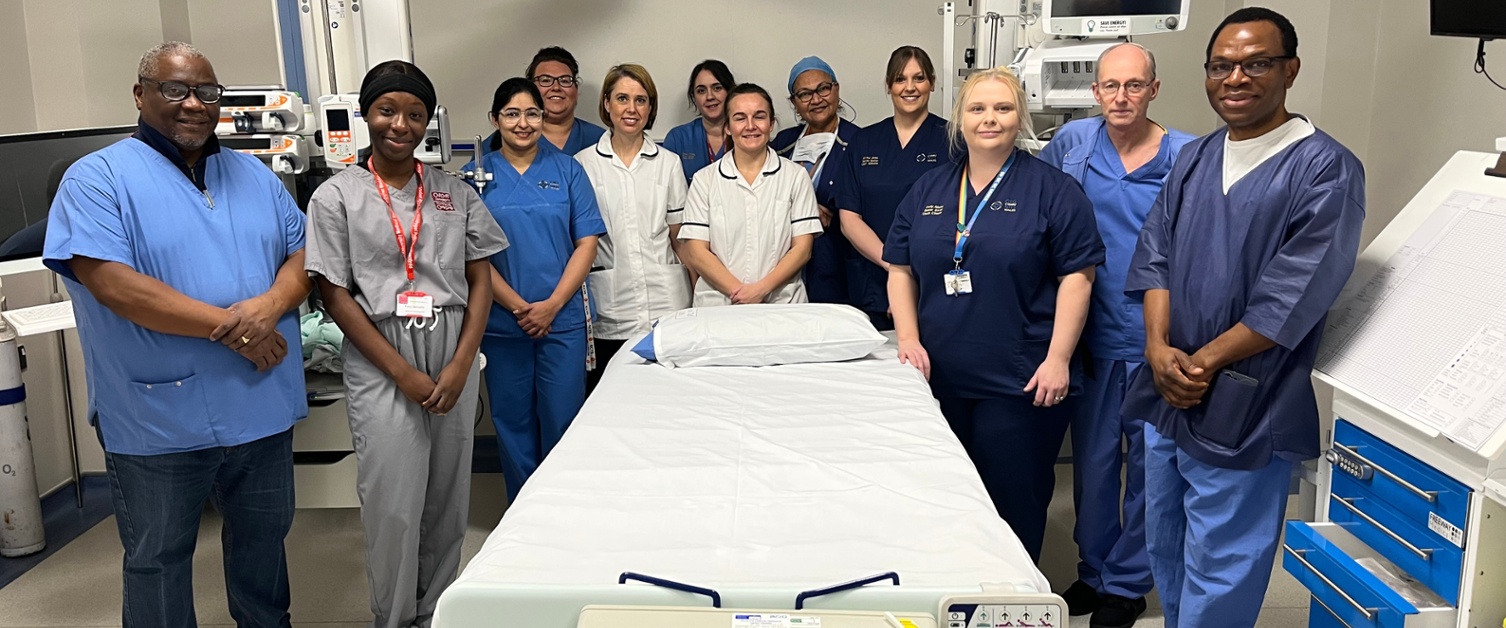National recognition for new hospital system that cuts patient recovery times

Cardiac patients will spend less time recovering in hospital following elective surgery thanks to a new system that could reduce overall bed days by over 1,600 a year.
A change in the procedure for specific patients in Swansea Bay aims to cut the time spent in hospital post-surgery from seven days to five.
The change will also reduce the risk of catching infections commonly associated with hospital stays, and lower the chances of delirium particularly in older patients.
If the new system had been in place during 2024, it’s predicted that patients would have spent 1,638 fewer days in beds in the Cardiac Intensive Therapy Unit (CITU), High Dependency Unit (HDU) and on wards.
Resources
Reducing bed days is forecasted to save the health board over £2 million, which includes staff resources and the equipment that would have been used in the previous method.
The changes also form part of Swansea’s CITU’s sustainability campaign with savings of 204,750kg of C02, the equivalent of 38 trips around the world in an average petrol vehicle.
The success of the procedure has caught national attention, with CITU winning the Sustainability in Cardiothoracic Surgery Award at the Society for Cardiothoracic Surgery annual meeting in Edinburgh.
The department has also been nominated for three categories at the NHS Wales Sustainability Awards 2025 in June – improvement and innovation; service of the year and sustainability champion Wales award.
Staff nurse Kaylee Marson and Consultant Anaesthetist Dr Sameena Ahmed are leading the project with colleagues in the Enhance Recovery After Cardiac Surgery (ERACS) team.
Kaylee said: “We have researched this specifically for patients having elective cardiac and thoracic surgery, and they will benefit from a number of changes in our approach pre and post surgery.
“From the data we studied, we believe we can save two bed days per patient, which is split into one day in either CITU or HDU and then another day on a ward.”
Surgery
Kaylee added: “The changes include supplying patients with a spirometer, which measures the amount of air they can breathe in and out, prior to surgery instead of the day after it. By doing it this way, it gives them a chance to read information on the device and practice ahead of their surgery which means they are will have a better technique and get the most out of the device.
“It really benefits the patient as the spirometer increases lung capacity which reduces the chance of collapsed lings and infections post surgery.
“We have also implemented a new pathway for ERACS which outlines the targets for patients, initially hour by hour when they arrive on CITU. The aim is to get them off using a ventilator less than four hours from when they were admitted into the unit, and, if successful, the patient will be encouraged to restart eating and drinking which obviously contributes to their recovery.
“We are also changing the fluid intake of our patients. We are giving them a large volume of carbohydrate drinks – if they’re not diabetic – prior to surgery because it can help the body prepare and recover from the procedure. It also prevents the effects of starvation.
“Patients are now walking to theatre, when possible, as research has suggested they feel more empowered doing that.
“All of those factors can help a patient go onto their unit or ward in better condition, and that results in them being discharged earlier from hospital to continue their recovery.”
The introduction of ERACS has got off to a successful start, with staff in different roles working closely together and with the patient to ensure they have as smooth a recovery as possible.
Knowledge
The system has been implemented following a link-up with St Bartholomew’s Hospital in London, which Swansea Bay staff visited to see the system in operation in order to gain knowledge and experience of it before it was implemented in Morriston Hospital.
Kaylee added: “The input from staff plays a huge factor in all of this. The ERACS team works very closely with our physiotherapists so that we can ensure patients are better prepared physically post-surgery.
“Elizabeth Ford has taken a very big role in developing the pathway from a physio perspective while our consultants and nurses are also integral in this process, so it’s been a real success in terms of how we work as we’re helping patients recover in the comforts of their own home rather than on a ward or unit in hospital, where they are more exposed to picking up infections.
“While it takes a large multidisciplinary team to care for someone having cardiac surgery, a combination of knowledge, hard work and cooperation gives patients the best possible recovery.
“The new approach is now in place and it’s something patients and the health board’s staff and services will benefit from.”
Support our Nation today
For the price of a cup of coffee a month you can help us create an independent, not-for-profit, national news service for the people of Wales, by the people of Wales.





